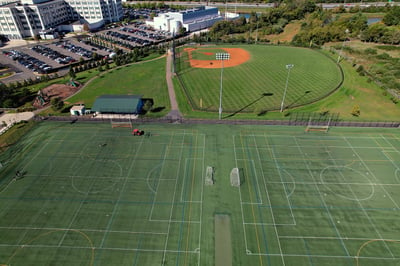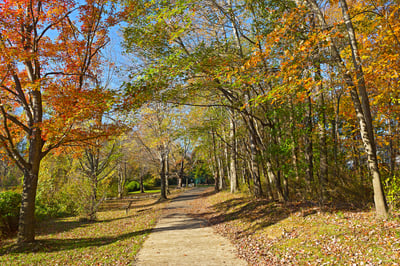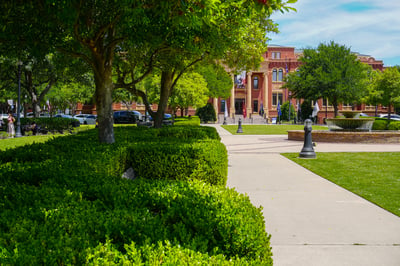When it comes to animals and your property’s landscape getting along together, sometimes there are problems.
Whether it’s wild animals or domesticated ones, you might be looking for some ways to prevent animal damage on your landscape.
After all, the last thing that you want is to lose any element of your landscape to damage caused by our furry or feathered friends. But it is a fact that animals and landscaping can sometimes struggle to exist harmoniously. Plant material can become food to animals—or they might trample, tear it up, or damage it in any other number of ways.
On top of all that, animals have no qualms about where they’re going to the bathroom, and as unpleasant as it may be, your landscaped areas might become their loo.
This is not only an aesthetic detraction (and yucky!) but it can be a hazard, too.
That’s why in this article, we’ll address a number of different potential animal-related issues with landscaping. We often get asked for our expertise or advice in these areas as these issues can be frustrating. What we’ve found over the years is that there may not always be a surefire solution, but diligence can pay off.
1. How to Keep Pesky (and Messy) Geese Away from Your Property
As far as common queries go in regard to ways to prevent animal damage on your property, geese come up a lot. If your commercial property has a large body of water or open turf areas, these can become attractive landing zones for geese.
But the presence of a lot of geese hanging out on your property can become problematic for a few different reasons.
One of the big frustrations with geese is when their droppings end up everywhere. You might start to see geese droppings all over hardscaping or turf areas.
.jpg?width=1200&name=1024px-Geese_-_oies_(2139757368).jpg)
While this is not only unattractive (and frankly, gross), it’s also a real potential safety hazard. It can not only be a slip and fall concern since goose poop is slippery, but goose feces can be a health hazard, too. There are various bacteria found in goose poop which can make it dangerous to be around. This is particularly true for pets, who might ingest it.
Geese can also be somewhat aggressive if they’re nesting. And, we’ve found that geese can cause damage to turf areas and landscaping either from eating it or trampling in it. Plant beds can become popular hang-out spots for geese because they feel safe and secure amongst the plants.
With all of this in mind, we often get asked how to keep geese away from commercial properties and we have found that there are a number of geese deterrent systems out there. There are also temporary geese fencing and netting systems that can deter these animals (particularly from certain areas).
As far as effectiveness, the geese deterrent systems that work with lights, which make it undesirable for the geese to land, seem to work best from what we’ve seen.
No matter what method you choose, it should always be humane. We would never advocate harming geese or any other animals in your landscape. Instead, our best advice would be to make the environment less hospitable for them so that they move on and find somewhere else.
Geese deterrent light systems work well for this.
2. How to Keep Hungry Deer From Eating or Damaging Your Landscape
We are also frequently asked what to do about deer. Deer can become ravenously hungry, particularly in the winter when food is scarce, and this can lead them onto commercial properties where they’ll start to treat the landscaping like a 24-hour buffet.
Deer can be difficult as they’re quite stubborn and are often persistent about eating plant material even after various deterrents have been implemented.
One way to deter deer is to choose plant material that they don’t particularly like. While there is no plant that is 100-percent deer-proof, there are some choices that they’re less likely to eat than others.
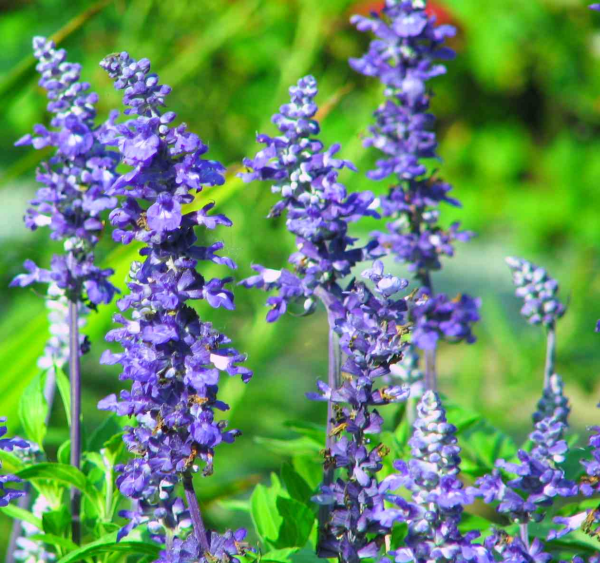
This could be due to taste, texture, or smell.
Here are some plants that are less likely to be eaten by deer.
- Salvia
- Elderberry
- Spirea
- Colorado Blue Spruce
- Echinacea
- Dianthus
- Foxglove
- Rosemary
- Mint
- Crape Myrtle
- Fountain Grass
- Zinnia
- Shirley poppies
- Verbena
As we mentioned, none of these are entirely deer-proof. A starving deer will overcome a distaste for something if they’re hungry enough. However, these choices are less likely to be eaten than others.
You can also talk to your landscape designer about plant placement and installing plants in locations where they’ll be less likely to be eaten (or trampled). Perimeter areas of the property which border the natural habitat are more likely to see deer issues than areas that are closer to human activity and require the deer to leave the safety (and hiding) of nature.
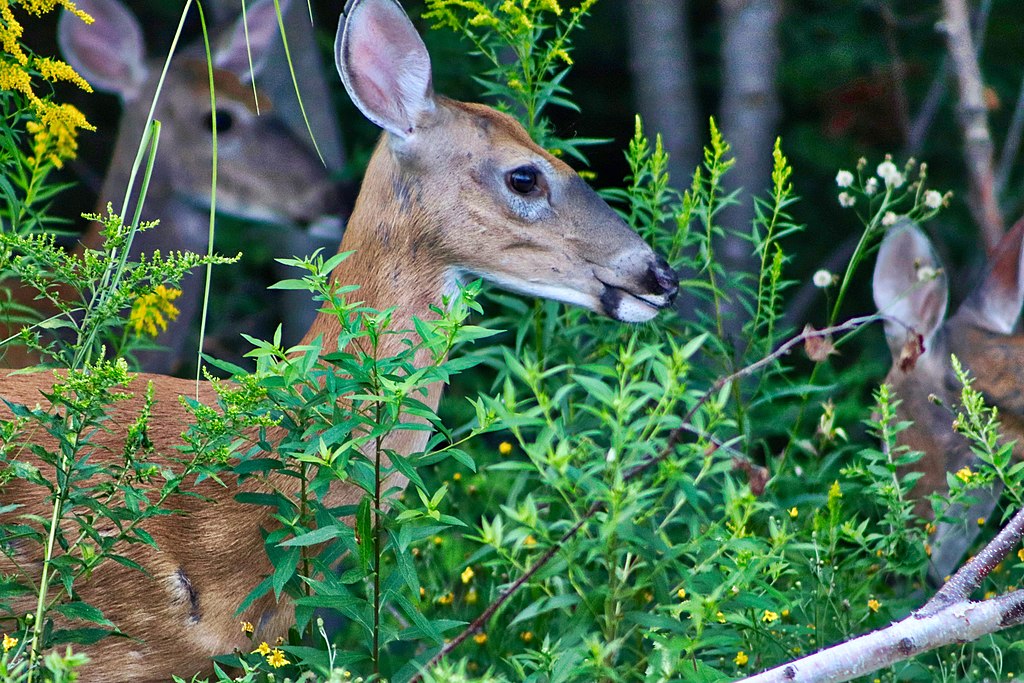
Of course, you probably know that hungry deer can get brave and encourage them to sneak further and further onto your property.
That’s why in addition to being selective about your plant material, other ways to prevent animal damage on your property can be to use netting. We have had a fair amount of success with using deer netting on landscaping plants that our clients want to protect.
While netting can be utilized year-round, we would particularly recommend it in the winter when other food sources become limited and deer become more likely to munch on landscape plants.
3. How to Implement Dog-Friendly Landscaping Ideas
Another really important consideration is dog-friendly landscaping. In the case of an HOA or another commercial property in which dogs are frequent residents or guests, then you are going to end up dealing with dog-related damage like urine burn or even torn-up turf areas.
Having dogs around your property can also be a frustration when it comes to inconsiderate owners that don’t scoop their pets’ poop.
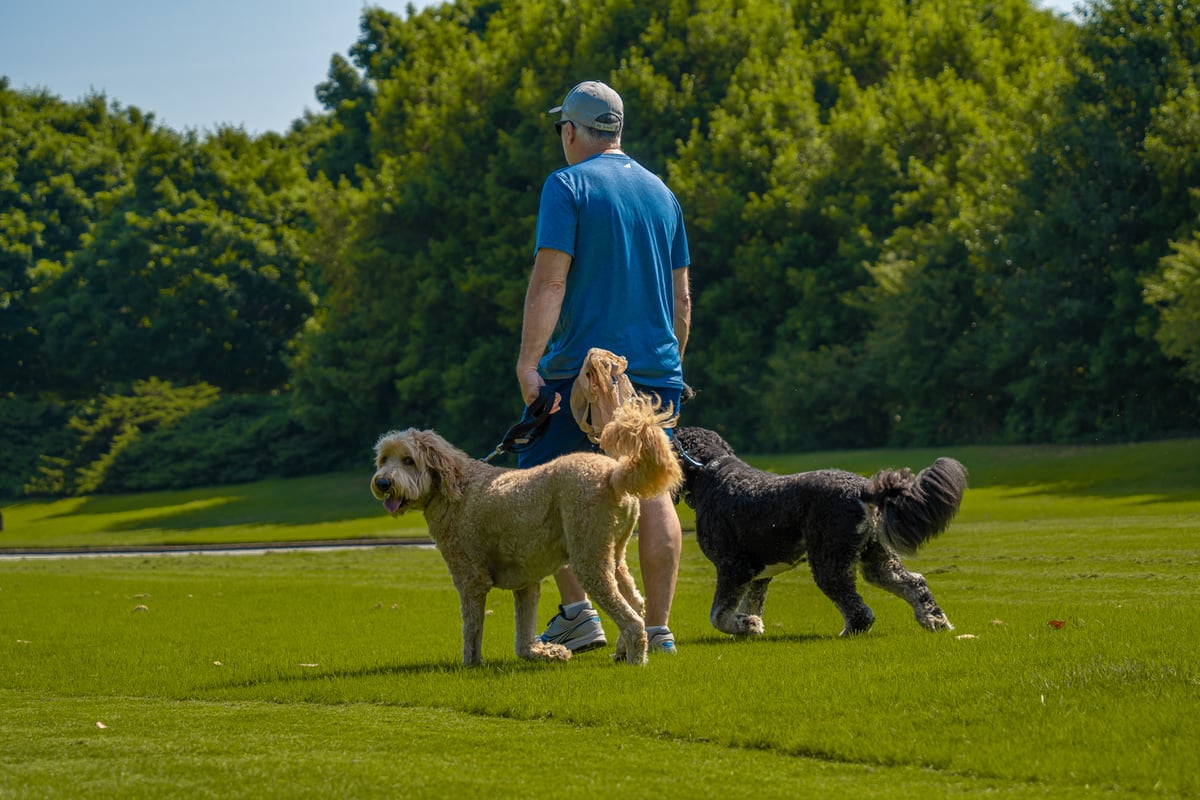
To help attempt to deter some of this behavior and damage, we recommend implementing as many dog-friendly solutions as possible.
For one, it can be incredibly effective to have a designated, fenced-in dog-run area, where dogs can be let off the leash. Instead of just letting them roam wherever they want on the property (on a leash or not), having a specific area where they are meant to go can help to mitigate damage from urine burn and torn-up turf.
We also recommend that property managers ensure there are enough stations for dog bags and trash cans to help limit dog poop around the property.
While you’ll never be able to make an inconsiderate person more considerate, a lot of times, poop left lying on the turf is merely a matter of not having something to pick it up with. The owner might have forgotten to bring bags or maybe they don’t see a trashcan anywhere in sight.
You can encourage overall better habits by ensuring there are always plenty of sanitation stations around the property with bags and trash cans.
Working with Your Landscaping Partner on Ways to Prevent Animal Damage On your Property
At the end of the day, there might not be a simple solution. Animals are crafty and persistent and if they like hanging out on your property, it might not always be easy to stop them.
But there are solutions out there—and sometimes a combination of solutions might be what works best.
When you work with a landscape partner who truly has your “back” with these types of issues, they’ll be able to work with you to find a solution that will work for your property. Even if it’s not a service that they provide, a true landscape partner will make recommendations and suggestions that help guide you toward success.
After all, the last thing they want to see is the landscape that they help you to maintain and cultivate, ruined by animals.
That’s why they’ll help you do what you can to protect your landscape.
Are you ready to feel confident in making a wise choice for commercial property landscaping? Request a consultation today. We’ll meet to learn more about your property and its challenges and come up with a comprehensive plan to take care of all of the details for you.



